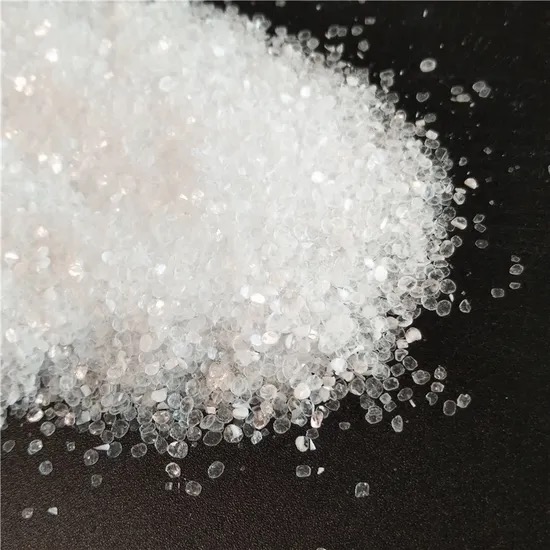Views: 222 Author: Sara Publish Time: 2025-09-28 Origin: Site








Content Menu
● Introduction to Sweeteners in Diet Coke
● What Sweetener Is in Diet Coke?
>> Aspartame: The Primary Sweetener
>> Other Sweeteners in Diet Coke Variants
● Health and Safety of Artificial Sweeteners in Diet Coke
>> Aspartame Safety and Debate
>> Other Health Considerations
● Emerging Research on Artificial Sweeteners and Health Impact
>> Metabolic and Cardiovascular Effects
>> Weight and Appetite Regulation
>> Cancer Risk
● Role of Sweeteners in Consumer Preferences and Beverage Formulation
● FAQ About Sweeteners in Diet Coke
>> 1. What artificial sweetener is used in Diet Coke?
>> 2. Is aspartame in Diet Coke safe to consume?
>> 3. Are there other sweeteners in Diet Coke?
>> 4. Why did Diet Pepsi remove and then bring back aspartame?
>> 5. How much Diet Coke can I safely drink given aspartame content?
Diet Coke is one of the most popular zero-calorie sodas worldwide, known for its distinctive taste and appeal to consumers seeking reduced-sugar beverage options. A key ingredient that defines its flavor profile is the artificial sweetener used to replace sugar. This article explores what sweetener is in Diet Coke, the science behind it, health considerations, and its role compared to other artificial sweeteners in the beverage market.

Diet Coke was introduced as a sugar-free alternative to Coca-Cola, providing the same refreshing taste with zero calories. To achieve this, Diet Coke relies on artificial sweeteners—ingredients that offer sweetness without the caloric content found in sugar. These sweeteners have become central to many food and beverage products marketed for weight-conscious or diabetic consumers.
The most common artificial sweetener in Diet Coke is aspartame, a compound that is roughly 200 times sweeter than sucrose (table sugar). Alongside aspartame, some variants and markets use blends with other sweeteners such as acesulfame potassium (Ace-K) or sucralose (SPLENDA®), depending on regional regulations and consumer preferences.
Diet Coke in the United States and many other countries primarily uses aspartame as its sweetening agent. Aspartame was approved by the FDA in 1981 and has been a popular artificial sweetener in diet sodas ever since. It provides a sweetness close to sugar but without calories, making it ideal for use in zero-calorie beverages like Diet Coke.
Aspartame's intense sweetness means only a tiny amount is needed, which helps keep calorie counts low. Early versions of Diet Coke sometimes used a blend of aspartame and saccharin, but the formula has since moved to 100% aspartame for a cleaner taste.
In addition to aspartame, some Diet Coke versions feature alternative or supplementary sweeteners such as:
- Acesulfame potassium (Ace-K): A calorie-free sweetener often blended with aspartame to enhance sweetness and stability.
- Sucralose (SPLENDA®): Used in certain Diet Coke products as an alternative, though less prevalent.
- Saccharin: Early use in Diet Coke but now less common due to taste and regulatory preferences in some markets.
Coca-Cola occasionally tests formulations with different sweetener blends tailored to regional tastes, but aspartame remains the predominant sweetener globally.
Aspartame, like many artificial sweeteners, has been extensively studied for its safety. Regulatory bodies such as the U.S. Food and Drug Administration (FDA), the European Food Safety Authority (EFSA), and the World Health Organization (WHO) recognize it as generally safe when consumed within acceptable daily intake limits.
However, controversies persist. In 2023, WHO classified aspartame as "possibly carcinogenic to humans," a category that signals some risk but not definitive evidence. The amount needed to reach dangerous levels is significantly higher than typical consumption—more than 9-14 cans of Diet Coke daily for an average adult. The FDA and other authorities still affirm aspartame is safe at normal consumption levels.
Apart from cancer concerns, studies have explored potential effects of artificial sweeteners on metabolism, appetite, and cognition. Some recent research suggested links to cognitive deficits in animal models at certain doses. Additionally, ingredients like caffeine and phosphoric acid in Diet Coke also affect consumer health and preferences.
Consumers interested in sugar alternatives should balance potential benefits with any emerging research trends and personal health goals.

Recent comprehensive studies provide a broader perspective on artificial sweeteners' effects on human health, beyond simply their safety for consumption.
Research indicates that artificial sweeteners, including aspartame, acesulfame potassium, and sucralose, may be associated with increased risks for cardiovascular disease and metabolic disorders. A large prospective cohort study found links between the consumption of artificial sweeteners and higher risks of cardiovascular events, including hypertension and stroke, though these findings are still considered to have low certainty and require further investigation.
Mechanistically, some sweeteners may influence lipid profiles and blood pressure, contributing indirectly to cardiovascular risk. Regular intake of artificially sweetened beverages, such as Diet Coke, might modestly impact markers like cholesterol ratios and blood pressure, important considerations for long-term health.
Artificial sweeteners were originally developed to help with weight management by providing sweetness without calories. However, some observational studies suggest a complex relationship between artificial sweetener consumption and weight gain, especially in children and adolescents. Some evidence points to a paradoxical effect where sweetener intake may stimulate appetite or increase preference for sweet foods, potentially undermining weight control efforts.
Randomized controlled trials have not definitively established whether artificial sweeteners cause weight gain or are simply associated with consumption patterns in people already prone to weight challenges.
Since the 1970s, concerns about artificial sweeteners causing cancer, particularly bladder cancer, have been studied extensively. Meta-analyses and cohort studies involving millions of participants have consistently found no conclusive evidence linking aspartame or other approved artificial sweeteners to cancer in humans. Still, precautionary research continues, especially about prenatal exposure and long-term effects.
Regulatory agencies maintain that current approved sweeteners, including those used in Diet Coke, do not pose cancer risks when consumed within recommended limits.
Some research has examined potential neurological effects of artificial sweeteners, including headaches and cognitive changes, though findings are inconclusive. Animal studies suggest certain artificial sweeteners might affect brain function when consumed in high quantities, but relevance to typical human consumption remains unclear.
The choice of sweetener directly influences the sensory attributes and market success of beverages like Diet Coke. Aspartame contributes a taste profile that many consumers recognize and prefer due to its sugar-like sweetness without bitterness.
When Coca-Cola briefly experimented with altering sweetener blends in some products, consumer backlash demonstrated strong loyalty to the original aspartame-based formula. This underscores how critical sweetener selection is to brand identity.
Sweetener blends, including acesulfame potassium and sucralose, are sometimes used to improve flavor stability and shelf life, as aspartame can degrade under heat or prolonged storage. Formulators carefully optimize these blends to balance taste, cost, and health considerations.
Diet Coke's signature sweetness primarily comes from the artificial sweetener aspartame, which provides sugar-like sweetness without calories and makes it a favorite among consumers seeking low-calorie beverage options. While regulatory authorities worldwide consider aspartame safe within accepted daily intake limits, emerging research has highlighted potential associations with cardiovascular risks, metabolic effects, and other health considerations that warrant moderation and further study. Other sweeteners such as acesulfame potassium and sucralose sometimes supplement Diet Coke formulations to enhance taste and stability.
Understanding the role and effects of artificial sweeteners in Diet Coke helps consumers make informed choices based on their health goals and preferences. As scientific evidence evolves, so too will the approaches to sweetener use in diet beverages globally.

Diet Coke primarily uses the artificial sweetener aspartame to provide sweetness without calories.
Regulatory bodies like the FDA, EFSA, and WHO consider aspartame safe within recommended daily intake levels, though some studies suggest moderation.
Yes, some versions may contain acesulfame potassium (Ace-K) or sucralose (SPLENDA®), but aspartame is the main sweetener.
Pepsi removed aspartame in 2015 but consumer dislike of the alternative sweeteners led to its return a year later.
An adult would need to consume more than 9-14 cans daily to reach concerning aspartame levels, which is much higher than typical consumption.
[1](https://pmc.ncbi.nlm.nih.gov/articles/PMC10822749/)
[2](https://www.bmj.com/content/378/bmj-2022-071204)
[3](https://nutritionsource.hsph.harvard.edu/healthy-drinks/artificial-sweeteners/)
[4](https://pmc.ncbi.nlm.nih.gov/articles/PMC2951976/)
[5](https://www.mayoclinic.org/healthy-lifestyle/nutrition-and-healthy-eating/in-depth/artificial-sweeteners/art-20046936)
[6](https://www.missionhealth.org/healthy-living/blog/the-not-so-sweet-effects-of-artificial-sweeteners-on-the-body)
[7](https://theconversation.com/are-artificial-sweeteners-okay-for-our-health-heres-what-the-current-evidence-says-254238)
[8](https://www.sciencedirect.com/science/article/pii/S2665927125000632)
